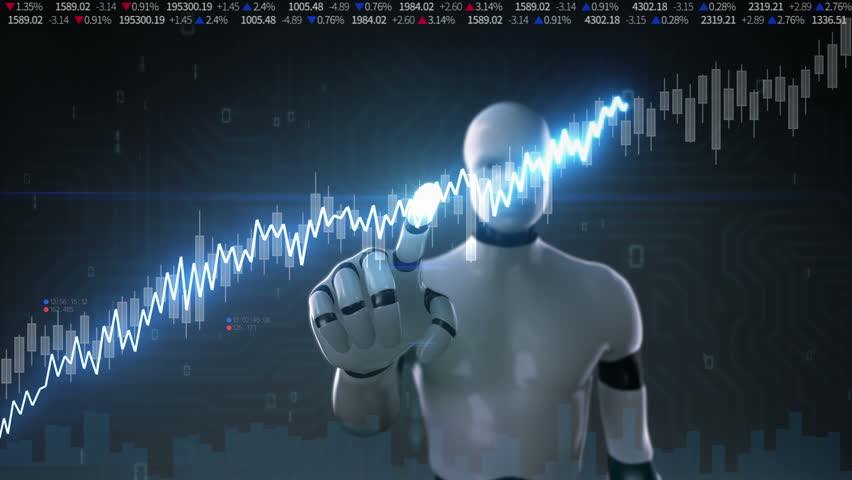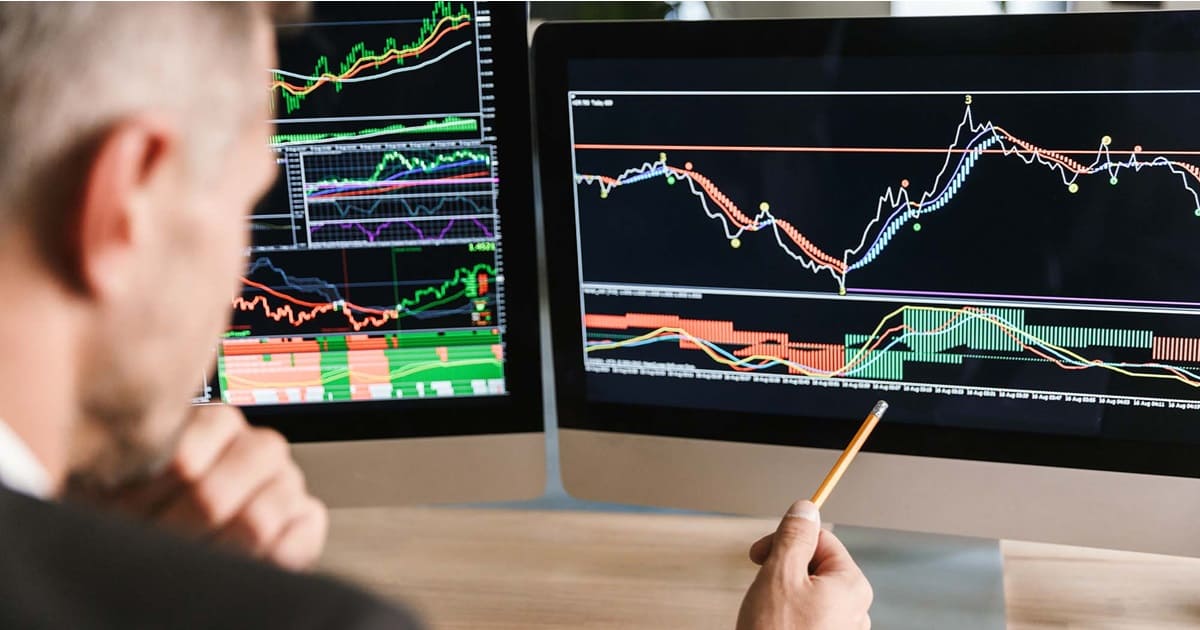In recent years, the world of forex trading has witnessed a significant transformation with the rise of Artificial Intelligence (AI). The integration of AI into forex trading strategies has revolutionized the way traders analyze the market and make trading decisions.
In this article, we will explore the basics of AI in forex trading, the evolution of AI in the industry, the impact of AI on trading strategies, and the benefits and challenges associated with its implementation. Furthermore, we will delve into the regulatory considerations surrounding AI-driven forex trading, highlighting the role of regulatory bodies in ensuring compliance and ethical practices.
ADVERTISEMENT
Understanding the Basics of AI in Forex Trading
Before we delve into the intricacies of AI in forex trading, let’s first define what AI is and how it plays a crucial role in this domain. Artificial Intelligence, in its simplest form, refers to the simulation of human intelligence in machines that are programmed to think and learn like humans. In forex trading, AI utilizes advanced algorithms and machine learning techniques to analyze vast amounts of data, identify patterns, and make informed trading decisions.
AI in forex trading involves the use of algorithms and models to gather and analyze market data, financial news, historical trends, and other relevant variables. By processing this information, AI systems can generate insights and predictions that help traders make informed decisions on when to enter or exit trades, as well as manage risk more effectively. AI’s ability to process large volumes of data at high speed enables traders to uncover hidden patterns and correlations that might be nearly impossible to detect through traditional analysis methods.
The integration of AI in forex trading has had a profound impact on the industry. Traditionally, traders relied on manual analysis and intuition to forecast market movements. However, by leveraging AI-powered tools, traders can now access real-time data, receive accurate predictions, and navigate volatile markets with greater precision. The intersection of AI and forex trading has paved the way for increased efficiency, improved decision-making, and enhanced profitability.
ADVERTISEMENT
One of the key advantages of AI in forex trading is its ability to process vast amounts of data in real-time. This allows traders to stay updated with the latest market trends, news, and events that may impact currency prices. By analyzing this information, AI systems can identify patterns and correlations that human traders may overlook. For example, AI algorithms can detect subtle changes in market sentiment or identify trading opportunities based on historical data.
Furthermore, AI in forex trading can help traders manage risk more effectively. By analyzing historical data and market conditions, AI systems can provide traders with risk management strategies and recommendations. These recommendations can include setting stop-loss orders, adjusting position sizes, or even suggesting when to exit a trade to minimize potential losses. This level of risk management automation can be particularly beneficial in volatile markets where prices can fluctuate rapidly.
In addition to risk management, AI can also assist traders in optimizing their trading strategies. By analyzing historical data and performance metrics, AI systems can identify patterns and trends that lead to successful trades. This information can then be used to refine trading strategies and improve overall profitability. AI algorithms can also adapt and learn from market conditions, allowing traders to continuously refine and optimize their strategies based on real-time data.
Another area where AI has made a significant impact in forex trading is in trade execution. AI-powered trading platforms can execute trades automatically based on predefined criteria and trading signals. This eliminates the need for manual order placement and allows traders to take advantage of market opportunities even when they are not actively monitoring the markets. AI algorithms can execute trades at high speed, ensuring that traders can capitalize on favorable market conditions without delay.
Overall, the introduction of Quantum AI has dramatically revolutionized the forex trading industry, bringing forth an era where traders are empowered with even more potent tools and insights. By harnessing Quantum AI’s power, traders now leverage advanced algorithms and machine learning techniques, enabling them to make highly informed decisions, manage risks more effectively, and refine their trading strategies to unprecedented levels. As technology marches forward, the role of Quantum AI is poised to expand significantly, promising to further augment efficiency and profitability in the ever-evolving forex market.

The Evolution of AI in Forex Trading
The journey of AI in forex trading has been remarkable, marked by significant advancements and innovations. Initially, AI applications in forex trading were limited to simple rule-based systems and technical indicators. However, with the advent of machine learning algorithms and advancements in computing power, AI systems have become more sophisticated and capable of adapting to changing market conditions.
ADVERTISEMENT
The Journey of AI in Forex Trading
Over time, AI-driven forex trading systems have evolved from basic rule-based models to complex deep learning algorithms. These advanced algorithms can automatically learn from data and continuously improve their performance by adapting to market dynamics. By utilizing historical market data, AI systems can identify patterns, trends, and market anomalies, enabling traders to make data-driven decisions.
Current Trends in AI-Driven Forex Trading
Today, the forex industry witnesses the proliferation of AI-driven trading platforms that offer a wide range of automated trading solutions. Machine learning algorithms are being employed to develop predictive models that analyze market data and generate trading signals in real-time. Cutting-edge technologies such as natural language processing and sentiment analysis are also being used to analyze financial news and social media sentiment, providing valuable insights to traders.
Impact of AI on Forex Trading Strategies
The integration of AI has not only revolutionized the way trading decisions are made but has also transformed traditional forex trading strategies. By leveraging AI-powered tools, traders can develop more robust strategies, improve risk management techniques, and achieve greater profitability.
How AI is Changing Traditional Forex Trading Strategies
AI has enabled traders to incorporate more complex and data-intensive factors into their trading strategies. By utilizing AI algorithms, traders can analyze multiple indicators, employ sophisticated technical analysis, and identify patterns that were previously undetectable. Furthermore, AI systems can continuously adapt and learn from market data, allowing traders to fine-tune their strategies in real-time based on changing market conditions.
ADVERTISEMENT
AI and the Future of Forex Trading Strategies
The future of forex trading strategies lies in the integration of AI. As technology continues to advance, AI systems will become more intelligent and capable of analyzing vast amounts of data in real-time. This will enable traders to develop cutting-edge strategies that anticipate market movements, reduce risk, and maximize returns. By leveraging AI, traders will be better equipped to navigate rapidly changing market conditions and gain a competitive edge.

The Benefits and Challenges of AI in Forex Trading
While AI offers numerous advantages in forex trading, it is important to recognize the challenges and potential risks associated with its implementation.
Advantages of Using AI in Forex Trading
- Increased Efficiency: AI systems can process large amounts of data quickly and accurately, allowing traders to make informed decisions in real-time.
- Improved Accuracy: AI algorithms can analyze market data and identify patterns with a high degree of precision, reducing human errors and biases.
- Enhanced Risk Management: AI-powered tools can assess and manage risk more effectively, helping traders to minimize potential losses.
- Time-saving: By automating various tasks, AI systems free up traders’ time, enabling them to focus on strategic decision-making.
Potential Drawbacks and Risks of AI in Forex Trading
- Complexity: Implementing AI systems requires substantial technical expertise and resources, which may pose challenges for smaller traders or firms.
- Unforeseen Market Conditions: AI models may not perform as expected during unprecedented market events or extreme volatility, leading to unexpected outcomes.
- Data Quality and Bias: The accuracy and reliability of AI systems heavily rely on the quality and representation of the training data, which may introduce biases or inaccuracies.
- Regulatory Compliance: Employing AI in forex trading raises regulatory considerations, as ensuring compliance and ethical practices becomes crucial.
AI and Regulatory Considerations in Forex Trading
As AI continues to gain prominence in forex trading, regulatory bodies are actively engaged in adapting to this technological advancement while ensuring fair and transparent markets.
AI, Compliance, and Forex Trading
Regulatory bodies worldwide are developing frameworks and guidelines to address the challenges and risks associated with AI-driven forex trading. These regulations aim to protect traders, maintain market integrity, and promote fair practices. Financial institutions and traders must adhere to these compliance standards to ensure transparency, accountability, and ethical use of AI in forex trading.
ADVERTISEMENT
The Role of Regulatory Bodies in AI-Driven Forex Trading
Regulatory bodies play a crucial role in overseeing the implementation and usage of AI in forex trading. They provide guidance on risk management, data privacy, algorithmic trading, and other relevant areas. By collaborating with industry stakeholders and conducting regular audits, regulatory bodies strive to strike a balance between fostering innovation and maintaining regulatory oversight.
Conclusion
In conclusion, the impact of AI on global forex trading strategies cannot be understated. From enhancing decision-making processes to transforming traditional trading strategies, AI has revolutionized the way traders analyze and act on market information. While offering remarkable benefits in terms of efficiency and accuracy, it is essential to address the challenges and risks associated with AI implementation.
Moreover, regulatory bodies play a pivotal role in ensuring compliance and ethical use of AI in forex trading. As the industry continues to evolve, it is imperative for traders and institutions to stay abreast of the latest developments and leverage AI strategically to gain a competitive edge in the global forex market.
ADVERTISEMENT
ADVERTISEMENT













